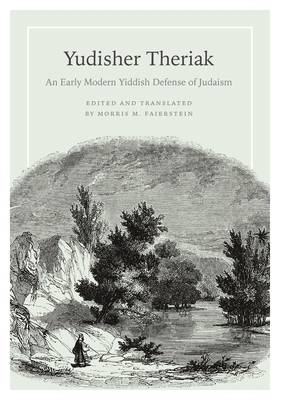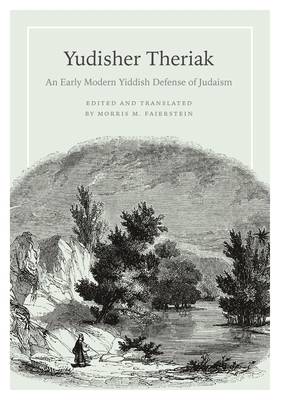
- Retrait gratuit dans votre magasin Club
- 7.000.000 titres dans notre catalogue
- Payer en toute sécurité
- Toujours un magasin près de chez vous
- Retrait gratuit dans votre magasin Club
- 7.000.0000 titres dans notre catalogue
- Payer en toute sécurité
- Toujours un magasin près de chez vous
Yudisher Theriak
An Early Modern Yiddish Defense of Judaism
Description
An annotated translation of the Yudisher Theriak, along with a comprehensive introduction that places the original work in its historical context.
The Yudisher Theriak [Jewish Theriac] by Zalman Zvi of Aufhausen, first published in Hanau, in 1615, was a response to an anti-Jewish work titled Jüdischer abgestreiffter Schlangenbalg [Jewish Shed Snakeskin], written by a Jewish convert to Christianity, Samuel Friedrich Brenz, and published in Nürnberg and Augsburg in 1614. Brenz's work was part of a genre of anti-Jewish books and pamphlets written in German and addressed to Christians that purported to reveal how Jews mocked and blasphemed against the Christian religion, cursed their Christian neighbors, and engaged in magic and witchcraft in order to inflict damage to their possessions and livelihoods. The name of Zalman Zvi's book is a direct allusion to Brenz's title, but it also hints at a larger purpose. Theriac is a Greek and Latin term that means "the antidote to the bite of a venomous snake." Perhaps Zvi hoped that his book would also serve as a theriac for the scourge of anti-Judaism, which was prevalent in his generation.
The Yudisher Theriak presents an interesting picture of how a learned Jew might respond to the many accusations against Jews and Judaism that became standardized and were repeated from author to author. The Yudisher Theriak makes a passing appearance in most scholarly books and many articles written about Christian-Jewish relations. Its existence is acknowledged and occasionally a fact or idea is cited from it, but its arguments and ideas have not been integrated into the scholarly literature on this subject. One reason that it has not received the attention it deserves is its language. It is written in a form of Early Modern Yiddish, more influenced by German and less familiar than its contemporary eastern European variant. In addition, Zalman Zvi was a learned Jew who interspersed Hebrew phrases, rabbinic terminology, and allusions to rabbinic literature in his work. Morris Faierstein's goal in this work is not to respond to all the references and allusions in the scholarly literature that the original text touches on, but rather to make the work available in an annotated translation that can be a useful tool in the study of Jewish-Christian relations in the early modern period and, more broadly, for early modern Jewish historical and cultural studies. The analysis and clarification of the many issues raised in the Yudisher Theriak await further studies. Faierstein has taken the first step by making the work available to an audience wider than the very narrow band of specialists in Early Modern Yiddish literature.
Scholars and students of Jewish-Christian relations and early modern Jewish historical and cultural studies will appreciate the availability of this previously inaccessible text.
Spécifications
Parties prenantes
- Editeur:
Contenu
- Nombre de pages :
- 200
- Langue:
- Anglais
Caractéristiques
- EAN:
- 9780814342480
- Date de parution :
- 14-11-16
- Format:
- Livre relié
- Format numérique:
- Genaaid
- Dimensions :
- 178 mm x 254 mm
- Poids :
- 553 g

Les avis
Nous publions uniquement les avis qui respectent les conditions requises. Consultez nos conditions pour les avis.





